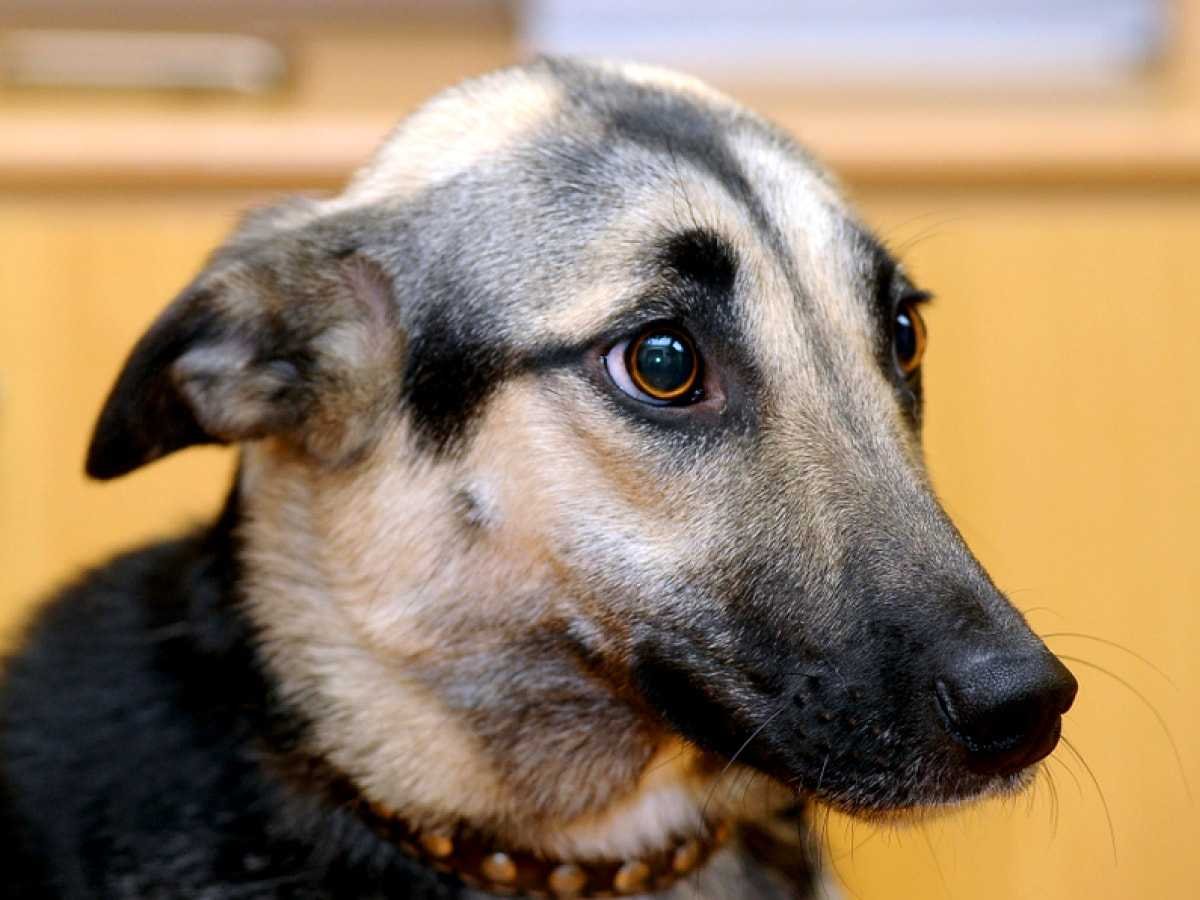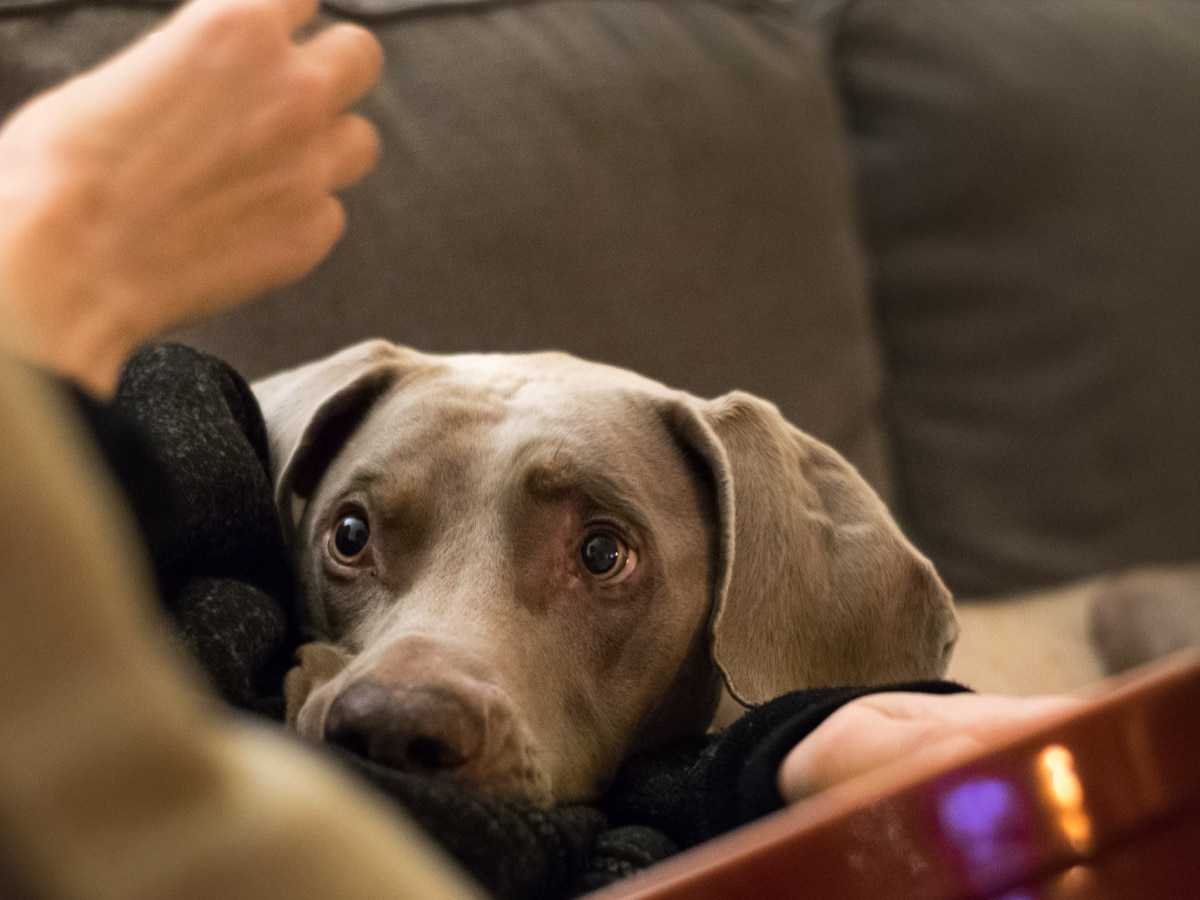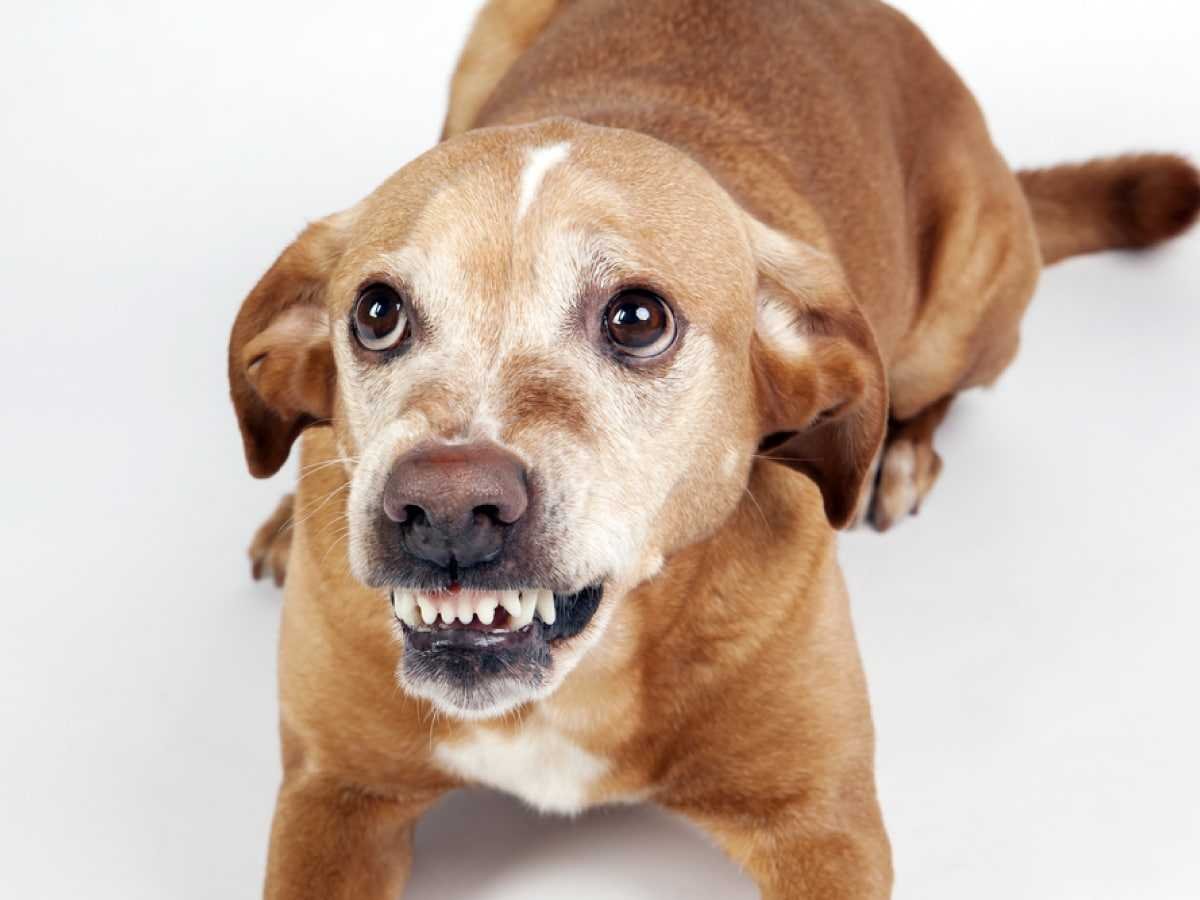Why Does My Dog Stare At Me?
Feel like your dog is always watching? Lurking? ... Plotting? Read on to learn more about why your dog stares at you and how you should react to this quirky behavior
Table of Contents:
Ever feel like you are being watched?
Well, if you have a dog at home, you probably are!
Dogs favor their owners, analyzing every move that is being made and waiting — just waiting for us to send the signal that it’s time to communicate.
Communication is a two-way street, so they may be trying to alert you that they need something such as a walk, some affection, food, or water.
Or… they are waiting for you to tell them what to do next.
Once you familiarize yourself with the cues dogs give, it is easier to determine what they are asking for.
What’s Some Common Dog Body Language?
Dogs talk to us through their body language.
Since staring is a non-verbal language, owners need to have a good sense of the dogs’ signs and how to interpret them. Let’s start by focusing on the eyes ;)
Instead of blankly looking into your dog's eyes, really pay close attention to them.
More importantly, fixate on the sclera (the white part of the eye). This part of the eye changes based on what your dog feels.
Here are some clues the sclera might uncover:
If your dog is tense, the sclera could appear rounded, or an excessive amount of white will become noticeable around the outside of the eye.
If a dog is frightened or stressed, the pupils themselves may dilate. When this occurs, the eyes may look glassy. If your dog seems stressed, try giving them a calming supplement to help them relax.
If a dog is comfortable or relaxed, the eyes become an almond shape. The sclera is barely visible, and you may even notice your dog squinting.
So what exactly are dogs trying to tell us through their eyes?
There’s a reason for everything, so let’s continue to read on and discover what they want us to know or what they are asking from us.
Staring as a Form of Communication
Owners may interpret their dog’s staring as cute and innocent... or flat-out creepy.
But before judging your dog’s behavior, monitor it.
Then unravel the mystery and solve it through interpretation and observation.
What Are You Doing?
Dogs study their owners. A lot.
From watching every move you make, to reading your facial expressions or changes in tone of voice, your dog is super in tune with you.
So your pup might get confused when they don’t understand your actions, or are concerned for your wellbeing. Notice how your dog seems to know when you’ve had a stressful day? They can literally read it on your face.
Ever see your dog performing the head-tilt? It’s super cute to watch, but in reality, it’s their way of processing what they’re witnessing and listening in for clarification on what to do next.
Below are a few examples of what happens when your dog studies you like a book.
It’s Time for a Walk.
The next time you take your dog for a walk, watch the reaction you get.
You don’t need to tell them what’s going to happen next. You only need to show them. =
For example, when you walk into the mudroom to grab your dog’s harness and leash, your dog may recognize that as a cue and will light up with excitement.
Feeding Time.
As creatures of habit, dogs love routine — but they can’t tell time.
So when they get hungry, they will patiently wait and watch as you take their now-empty food bowl to the food pantry to fill it. As soon as they see you scoop out their meal, the emotions take over.
Waiting for a Cue.
Sometimes your dog may be unsure of what to do next or what you expect them to do next.
When this happens, they are watching and waiting for you to give them the next cue. As a bonus, they know there is a special reward with their name if they perform the cue correctly.
When your dog stares at you, use it to your advantage and start a training session.
Sharing Their Emotions
If you are still unsure why your dog is staring at you, it could be related to their emotional state. Whether they’re after affection or attention, below are a few things your dog might be feeling.
I “Ruff” You!
You know the rush of warm love and joy you get when looking into your dog’s eyes?
That’s the “love hormone” oxytocin. And believe it or not, simply gazing into your pup’s eyes triggers your body to release it. It’s the same love hormone released when looking at our own human children, or when we’re in love.
Pretty powerful, right?
Now look at your dog with loving eyes. If they return the gaze, share it. Make long, lingering eye contact to simply say, “I love you.”
Ahhhhhhhhhh. That’s better.
Potty, Please!
There are a few different ways for house-trained dogs to communicate their bathroom needs, and staring at you is one of them. If your dog is sitting by the door, this is an even stronger signal.
Pick Me, Pick Me!
Even if your dog receives affection 24/7 they still may be asking for more. Some days, they just can’t get enough!
Here are some ways to show your dog affection:
Reach over and give your dog a belly rub or a nice stroke across their back to acknowledge them. Dogs sometimes need a little reassurance that they are cared for and loved (#same).
Saddle up and head outside for a walk. Nothing major; it could be a brisk walk around the block. This should cure any boredom your dog may be feeling at the moment.
Play a game. Grab a tennis ball and play fetch, or throw a frisbee around. How about tug-o-war? Games could be more exciting than a walk for your dog, and it’s a great way to help with mental stimulation.
Aggression
Staring can be a form of love, but it also could be a way to show unhappiness.
In this way, it is a behavior that stems from the dog's wolf ancestry. The old saying that the “gaze of the wolf reaches into our soul” is not too far off. Wolves would use staring as a threatening or rude gesture. Some dogs still retain this attitude and will do what it takes to protect you, their owner.
If you ever feel threatened by a dog, don’t stare back at them, and keep your distance. Allow for the dog to settle down on its own. If the behavior continues, you may want to contact your veterinarian or a behaviorist, whether it is aggression towards you or other dogs.
Begging for Food
What time is it? Is it close to your dog’s routine feeding time? Or maybe your dog’s main motivator is food?
If your dog stares at you with those sad puppy eyes, it could be because they feel rumbly in their tummy and want you to fill up their bowl.
Unless, of course, you have something tasty in your hands that they would love to get a taste of! It only takes one handout to teach your dog that begging is acceptable.
Don’t give in to your dog’s manipulative behavior!
Break this habit and stimulate your dog through training methods. If you want to keep them close at the table during mealtime, teach them to sit or lay down with a bone, a chew toy, or a food puzzle. If you prefer that they are away from the table, positively train them to stay in a different room during your mealtime.
Something Doesn’t Feel Right
How often does the staring take place, and for how long? Your dog could be trying to tell you that they are uncomfortable, feel pain, or feel sick.
Keep an eye on their activity level. Also, watch for a change in their eyes. If you start to see a glassy, unfocused look, it’s probably a good idea to make an appointment with your vet.
If you have an older dog, this behavior could signify canine cognitive dysfunction (CCD). Additional symptoms of CCD include disorientation, a change in their sleep cycle, forgetting commands. Keep an eye on your elder and report any unusual behavior to your vet.
Bottom Line: Staring Isn’t a Bad Thing
Dogs use their eyes to communicate non-verbally. And who knows your dog better than yourself?
Learning about the different meanings of the eye stare can help you respond to your dog's needs. It also makes it less awkward. Nine times out of ten, you are your dog’s precious, and they are staring at you because they want to be a part of every action you take.
Looking for more info on all things doggo? Check out Finn’s other blog posts here!
Sources:
Why does my dog stare at me | The Kennel Club





